Mountain Equipment Company is the primary sponsor of the Avalanche Canada Training program.
Need another reason? Head to our interactive mini site, Rescue at Cherry Bowl, to find out how training saved the lives of three skiers against all the odds.
Avalanche Canada Training Program
Avalanche Canada Training courses are the national standard for recreational avalanche training. The courses are designed by Avalanche Canada to suit the needs of recreationists and delivered by independent third-party providers, who are licensed by Avalanche Canada.
Avalanche Canada Training Program Courses
Avalanche Skills Training 1
Do you venture out of bounds, off the trails, or into the backcountry? An AST 1 is your place to start. You don't need any experience to take this course, but it is a must for everyone recreating in the backcountry.In an AST 1, you’ll learn how to recognize avalanche terrain, understand the avalanche forecast, plan your trips, and perform a companion rescue. An AST 1 is a minimum of two days and has both online/classroom and field components. Everyone in your group should take an AST 1—it’s the first step to travelling safely in the backcountry.
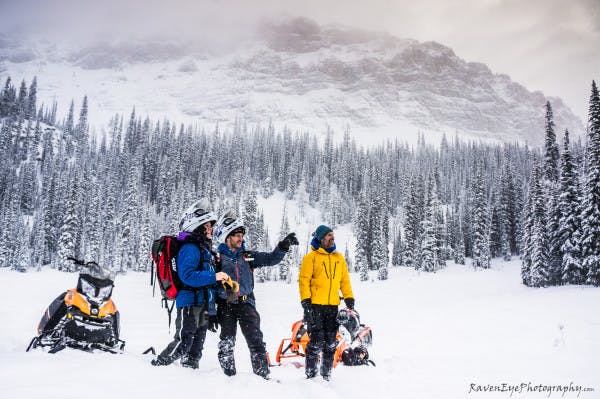
What you will learn:
- Avalanche formation and release.
- How to identify avalanche terrain.
- The basics of trip planning.
- How to use the avalanche forecast to mitigate your avalanche risk.
- Using appropriate travel techniques in avalanche terrain.
- Intro to companion rescue.
Many instructors can offer AST 1 packaged with Companion Rescue Skills or Managing Avalanche Terrain. Check out the course schedules to see what is right for you.
See what taking an AST 1 course is like: watch the riders from Boondock Nation take their AST 1 course and find out what they’d been missing.
Download, print and sign your waiver here: AST Student Release.
AST 1 Refresher
Have your AST 1 but could use a little refresh or want to sharpen your skills? This course is for you.The AST 1 Refresher is aimed at individuals who have completed an AST 1 and are looking to refresh their skills and knowledge. This one day, field-based course provides a review of the material covered in the AST 1 and includes any industry updates to the curriculum. The course is ideal for those who want to keep their basic avalanche training skills up-to-date or those who simply desire a refresher day in the field with an instructor.
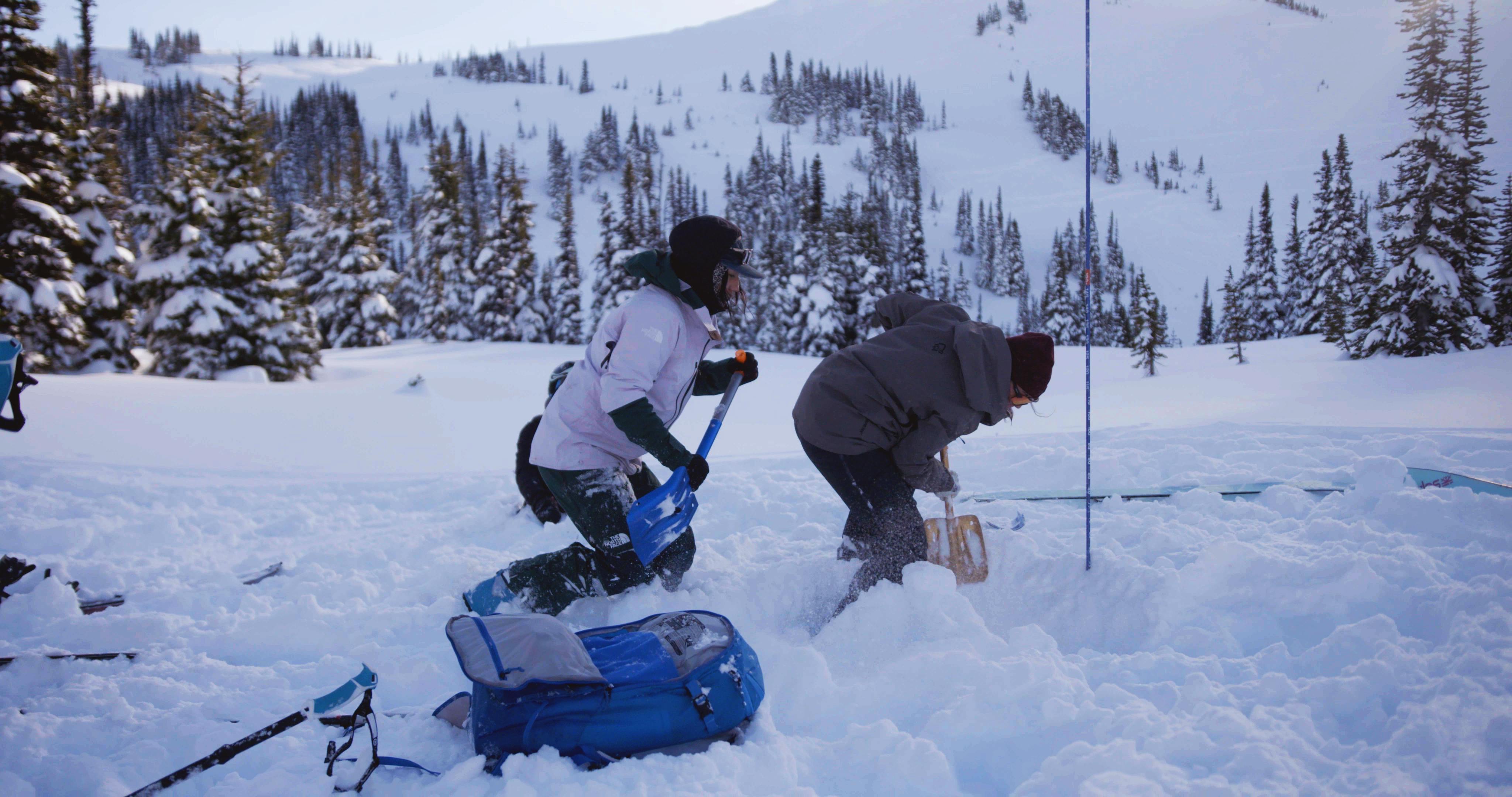
What you will learn:
- A refresh of the AST 1 curriculum.
- Refreshing and practice of companion rescue skills.
- Any updates to avalanche safety education or techniques.
- How to use new AvCan tools or materials.
An AST 1 refresher is a great way to make sure you're staying sharp in the backcountry, but if you're looking for the next step, try a Managing Avalanche Terrain course, or consider AST 2.
Companion Rescue Skills
Hone your rescue skills. This course is a must-have for all winter backcountry recreationists.The Companion Rescue Skills course is an important refresher for those with previous training and a great way to improve the rescue skills you learned in your AST 1. This hands-on, one-day course takes place in the field.
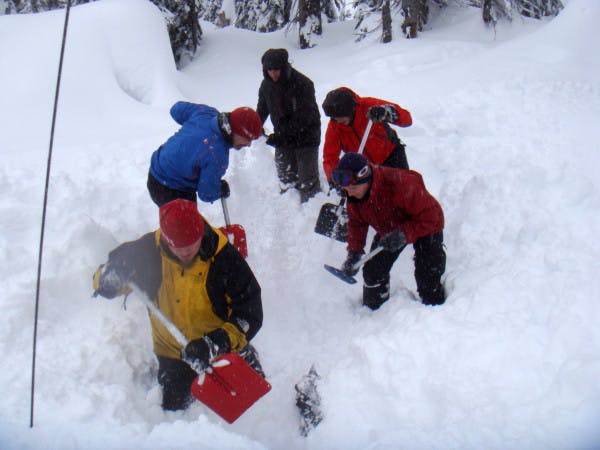
- Credit
- Brent Strand
What you will learn:
- How to respond safely and efficiently to an avalanche incident.
- How to hone your transceiver skills
- How to use your probe effectively
- How to shovel. Learn to organize your group with the most efficient shovelling techniques.
- Learn the best methods for finding a victim buried without a transceiver.
- How to practice these skills
Want to know more? Here are eight reasons you should take this course.
Managing Avalanche Terrain
Find your way! This course is for those who have taken AST 1 and are looking to improve their terrain assessment skills. If this sounds like you, Managing Avalanche Terrain (MAT) will be a valuable addition to your training.MAT is a very focused field-based course designed to expand on the terrain management taught in AST 1. This course will help you develop more advanced winter backcountry travel skills and mitigate your risk by honing your terrain evaluation and travel skills.
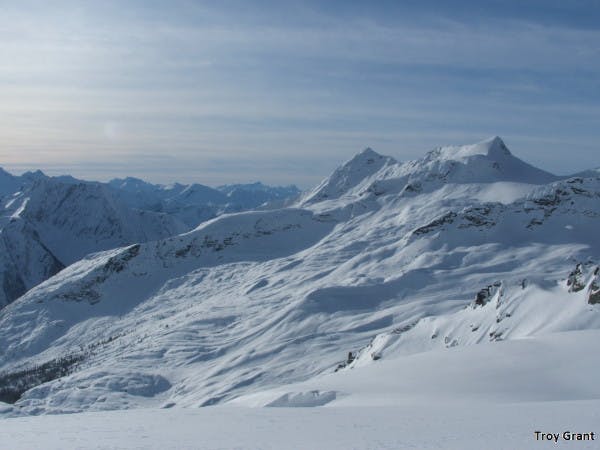
- Credit
- Troy Grant
What you will learn:
- Skills to help you plan, prepare for, and execute a safe backcountry trip.
- Techniques to minimize risk when travelling in the backcountry.
- How to recognize and classify avalanche terrain.
AST 1+
An AST 1+ course combines a standard AST 1 with Managing Avalanche Terrain to help you level up your backcountry travel skills.An AST 1+ is usually a three day course, with one online/classroom day and two field days. You'll learn everything that is taught in an AST 1 in the first two days. Then you’ll spend an extra day in the field, learning more about terrain management and developing more advanced winter backcountry travel skills.
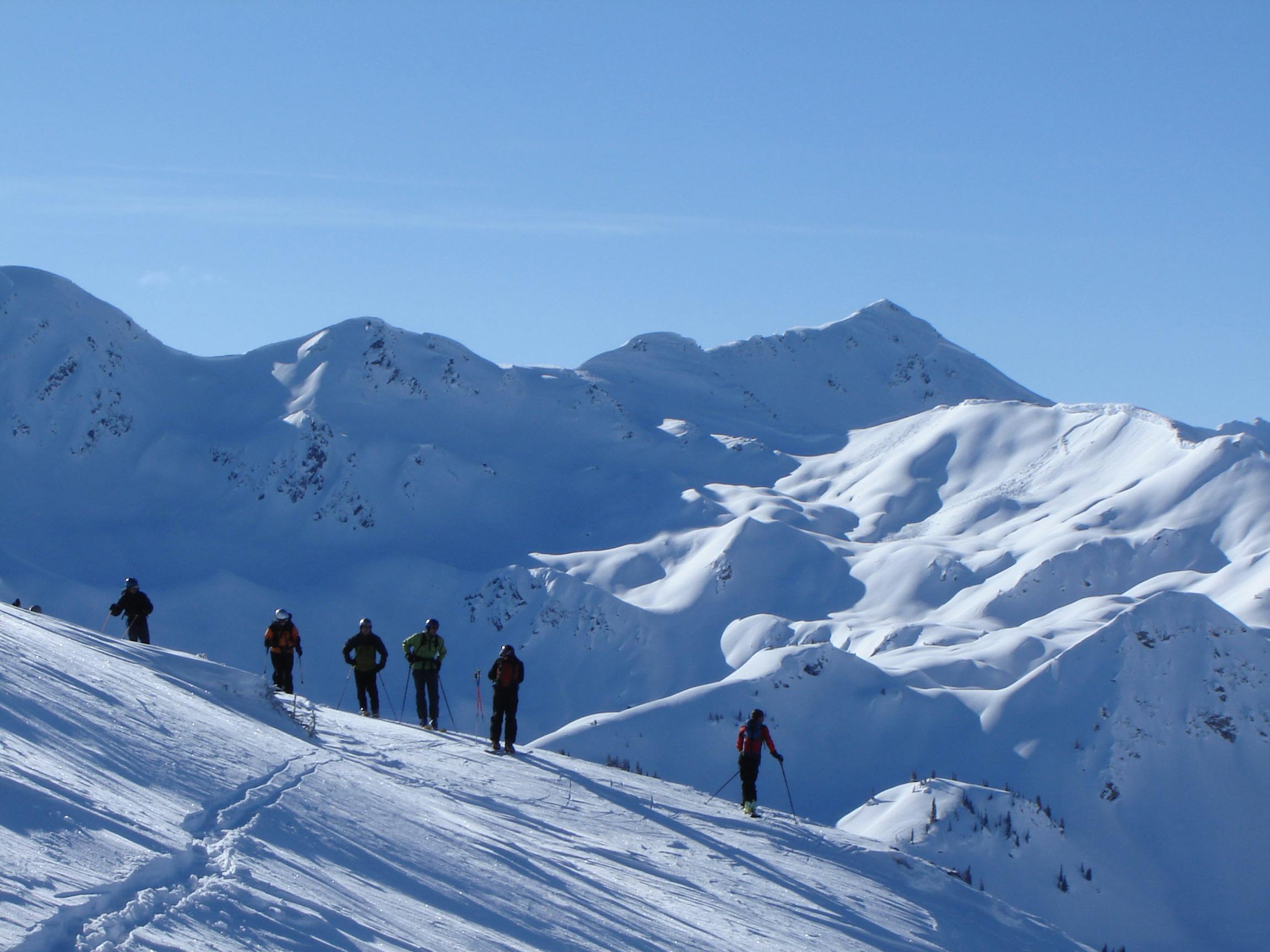
Avalanche Skills Training 2
AST 2 is the next step if you have taken your AST 1 and have gained some experience in the backcountryThe AST 2 curriculum is built around the daily process, which emulates the same approach used by professionals. It expands on the foundations of your AST 1 and provides a more advanced decision-making framework for travelling in avalanche terrain. AST 2 comprises a minimum of 9.5 hours of classroom instruction with a minimum of three days in the field to put what you’ve learned into practise.

What you will learn:
- Progressive planning and travel techniques required to travel safely through various types of terrain using the daily process.
- Getting the most from your avalanche forecast.
- Key techniques for applying the Avalanche Terrain Exposure Scale to develop your own terrain ratings.
- How to proficiently carry out a companion rescue.
- Decision making skills to manage avalanche risk.
- A deeper theoretical understanding of avalanche terrain and snowpack.
Watch pro snowboarders Blair Habenicht and Jason Robinson learn more in their AST 2 course.
Keeping Your Skills Sharp
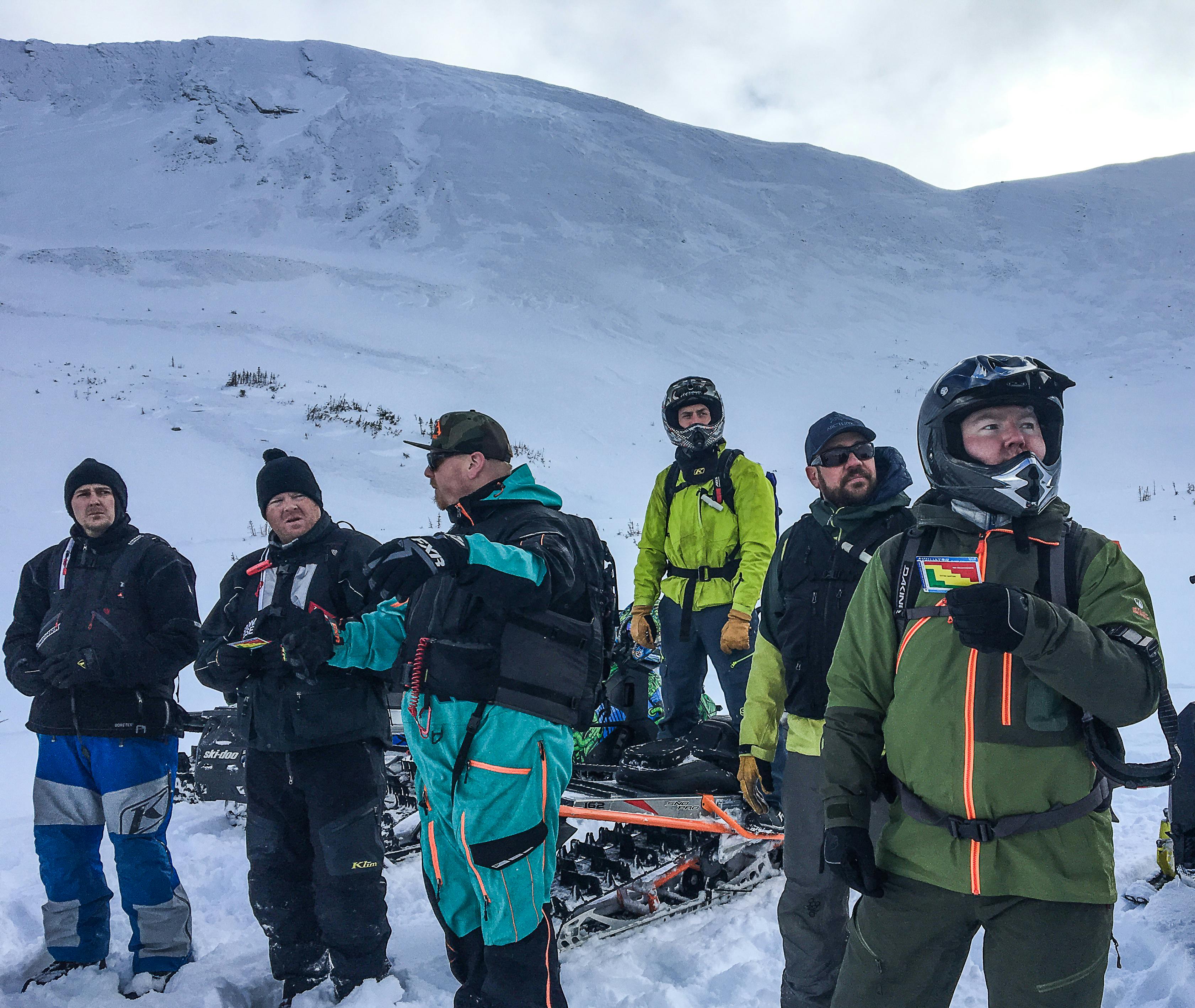
An AST certificate does not have an expiration date, but we highly recommend you continue the learning process by refreshing your education annually, or at least every two to three years. You can spend a lifetime learning about avalanches. As you continue your adventures in the backcountry, stay open to new opportunities for learning so you can know more, go further, and always come home.
Here are a few things you can do to stay avy savvy.
If you’ve taken an AST 1:
- Start every winter by reviewing the AST Handbook you received with your course and go through Avy Savvy, our online tutorial.
- Take one of our one-day courses: Companion Rescue Skills or Managing Avalanche Terrain.
- Watch our online webinars to learn from the experts.
- If it’s been a while since your AST 1, and your skills are feeling rusty, taking it again is a great option.
- If you’ve been spending time in the backcountry and are ready to learn more, take an AST 2 course.
If you’ve taken an AST 2:
- Re-read the course manuals, watch our webinars, and look out for online resources that will help expand your knowledge. There’s lots of information to remember and it never hurts to have a reminder.
- Get some friends together and take the AST 2 again. This ensures you’ll get a course tailored towards your experience levels and riding preferences.
- Take the one-day Companion Rescue Skills course with a group of friends. Learning and practicing together makes a solid backcountry team.
Find a Course and a Provider
If you already know what type of course you’re looking for, you can find one near you here:Find a Course
Please note: Not all course providers post their courses on our website. If you can't find a course in your region, search our provider database to find contact information of instructors in your region.
How Do AST Providers Work?
An AST Provider is a business or organization that offers Avalanche Canada courses; an AST instructor is the person who delivers the courses. Every AST instructor has to be a member of the Canadian Avalanche Association, the organization representing avalanche professionals in Canada, and have liability insurance coverage.
Although Avalanche Canada does not control, supervise, oversee, or manage the instructors or their courses, we do provide the curriculum and resources. Always choose a licensed AST Provider for your avalanche training. Look for the logo below or check the list of licensed providers here.

If you have any questions about your course or the qualifications of the instructor, please consult with the provider directly.
